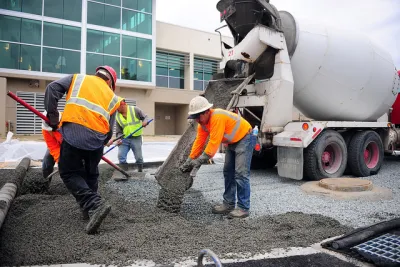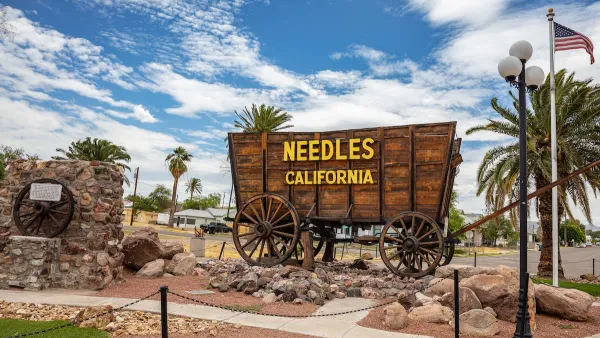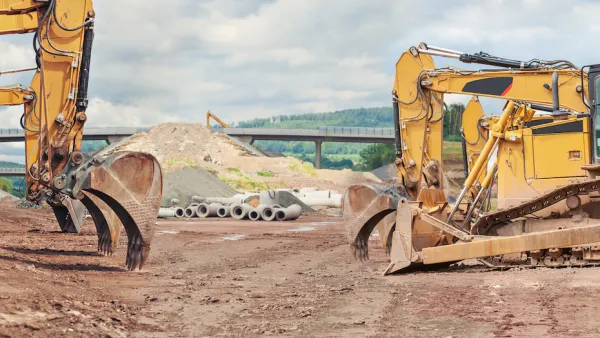Awarding federal funding via competitive grants could block grant opportunities for communities that need them the most.

As the Biden administration prepares to distribute billions in infrastructure funding to cities and states via competitive grants, some experts caution that many smaller and rural communities, lacking the institutional capacity to prepare slick grant applications and proposals, will be left out.
As Jake Blumgart writes, "Metro areas like Boston have a deep bench of experienced planners, a rich network of foundations and community development corporations, and organized business groups that push for transit and housing reform. But what about rural areas, deindustrialized Midwestern regions, or traditionally low tax and low service corners of the country like much of the American South?"
Most grants also require a 20 percent match, which may pose a challenge for poorer communities. "If federal agencies judge applicants by their capacity to draft and execute complex and resource-intensive projects, areas with smaller populations and smaller tax bases may suffer," says Blumgart. Federal funding available via competitive grants includes money for transit, brownfield remediation and climate resilience, electric vehicle infrastructure, and highway removal.
With smaller communities at a structural disadvantage, experts like Bruce Katz of Drexel University suggest the federal government could bolster capacity-building grants and improve access to grant-writing support for jurisdictions that would otherwise have a hard time catching the attention of federal officials.
FULL STORY: Smaller Cities, Poorer Regions Could Be Infrastructure Losers

National Parks Layoffs Will Cause Communities to Lose Billions
Thousands of essential park workers were laid off this week, just before the busy spring break season.

Retro-silient?: America’s First “Eco-burb,” The Woodlands Turns 50
A master-planned community north of Houston offers lessons on green infrastructure and resilient design, but falls short of its founder’s lofty affordability and walkability goals.

Delivering for America Plan Will Downgrade Mail Service in at Least 49.5 Percent of Zip Codes
Republican and Democrat lawmakers criticize the plan for its disproportionate negative impact on rural communities.

Test News Post 1
This is a summary

Test News Headline 46
Test for the image on the front page.

Balancing Bombs and Butterflies: How the National Guard Protects a Rare Species
The National Guard at Fort Indiantown Gap uses GIS technology and land management strategies to balance military training with conservation efforts, ensuring the survival of the rare eastern regal fritillary butterfly.
Urban Design for Planners 1: Software Tools
This six-course series explores essential urban design concepts using open source software and equips planners with the tools they need to participate fully in the urban design process.
Planning for Universal Design
Learn the tools for implementing Universal Design in planning regulations.
EMC Planning Group, Inc.
Planetizen
Planetizen
Mpact (formerly Rail~Volution)
Great Falls Development Authority, Inc.
HUDs Office of Policy Development and Research
NYU Wagner Graduate School of Public Service





























